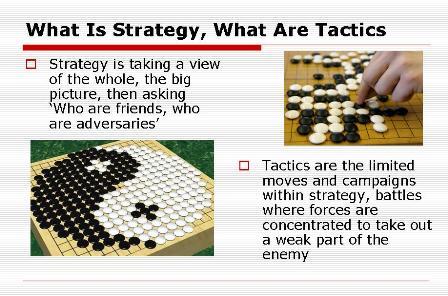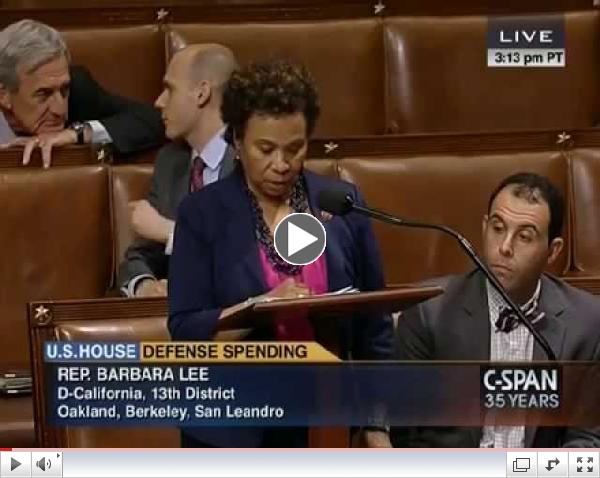 The new annual edition of our journal of discussion and analysis is now out. More than 170 pages, it includes 14 articles on strategy austerity, organizing, and the right. Cost is $10 plus shipping. Or get one by becoming a sustainer. Click the title to buy it directly. The new annual edition of our journal of discussion and analysis is now out. More than 170 pages, it includes 14 articles on strategy austerity, organizing, and the right. Cost is $10 plus shipping. Or get one by becoming a sustainer. Click the title to buy it directly.
|
 | |
Journal of the Black Left Unity Network
|
|
 | |
Remembering Carl Bloice 1939-2014:
A celebration in two hours
|
|

New CCDS Book Reporting on Vietnam
|
|
Radical Jesus:
A Graphic History of Faith  By Paul BuhleHerald Press By Paul BuhleHerald Press
|

Want to Know what CCDS has
been doing...Check it Out!
|
 Keep On Keepin' On Keep On Keepin' OnHating the 'Middle Class,' Why Socialists Run in Elections, Strategy and Tactics Slide Slow, Class and Privilege, the Green New Deal ...and other Short Posts on Tumblr by Carl Davidson
|

Edited by Carl Davidson Revolutionary Youth the the New Working Class: The Praxis Papers, the Port Authority Statement, the RYM Documents and other Lost Writings of SDS
Changemaker, 273pp, $22.50
For the full contents, click the link and view 'Preview' under the cover graphic.
|
|
By Randy Shannon, CCDS

"Everyone has the right to work, to free of employment, to just and favorable conditions of work and to protection against unemployment."
- United Nations Universal Declaration of Human Rights, December 10, 1948
I. Introduction
The "Great Recession" that began in 2007 has caused the greatest percent of job losses since the Great Depression of 1929. This crisis is the end of an era of unrestrained 'neo-liberal' capitalism that became public policy during the Reagan administration. The crisis marks a new level of instability with the growth of a global financial elite that targeted US workers and our trade unions after World War II.
|
|
Order Our
Full Employment Booklets
 |
...In a new and updated 2nd Edition
Capitalism may well collapse under its own excesses, but what would one propose to replace it? Margaret Thatcher's mantra was TINA...There Is No Alternative. David Schweickart's vision of "Economic Democracy" proposes a serious alternative. Even more fundamentally, it opens the door to thinking about alternatives. His may or may not turn out to be the definitive "successor system," but he is a leader in breaking out of the box. |
 by Paul KrehbielAutumn Leaf Press, $25.64
by Paul KrehbielAutumn Leaf Press, $25.64 | | Shades of Justice Video: Bringing Down a President, Ending a War |
|
 By Giuseppe Fiori
Verso, 30 pages
|

Essays on Mondragon, Marx, Gramsci
and the Green and Solidarity Economies |
Solidarity Economy:What It's All About

Edited by Jenna Allard, Carl Davidson and Julie Matthaei
Buy it here...
|

- Foreword by Susan Brownmiller
- Preface by Ken Wachsberger
$37.50 + $6 shipping
|
|
Discussion Documents for a Militant Movement

By Don Hamerquist
|
|
|
|
An Invitation to CCDSers and Friends...
 Tasks of the Day: Tasks of the Day:
Organizing Workers,
Opposing New Wars
We're the Committees of Correspondence for Democracy and Socialism...Do you have friends who should see this? Pass it on...Do you have a blog of your own? Others you love to read every day? Well, this is a place where you can share access to them with the rest of your comrades. Just pick your greatest hits for the week and send them to us at carld717@gmail.com! Most of all, it's urgent that you oppose war on Iran, defend voter rights, plan for 2014 races now, oppose austerity, support the 'Moral Mondays' in North Carolina, the Congressional Progressive Caucus' 'Back to Work Budget'! We're doing more than ever, and have big plans. So pay your dues, make a donation and become a sustainer. Do it Now! Check the link at the bottom... |
Threatened with Deportation, East Bay Recycling Workers Did the Unthinkable: They Fought Back

Striking ACI workers at the gate of the recycling facility demand the right to return to their jobs after a work stoppage.
By David Bacon
San Francisco Bay Guardian
We all want to be responsible for our environment. We sort our trash. We put the right things into the right containers, and feel good when we see them at the curb on trash pickup day.
Then the trash disappears. End of story.
But really, it's not the end. Not only does the trash go somewhere, but people still have to sort through what we've thrown away. In a society full of people doing work that's unacknowledged, and often out of sight, those who deal with our recycled trash are some of the most invisible of all.
Sorting trash is dangerous and dirty work. In 2012 two East Bay workers were killed in recycling facilities. With some notable exceptions, putting your hands into fast moving conveyor belts filled with cardboard and cans does not pay well - much less, for instance, than the jobs of the drivers who pick up the containers at the curb. And the sorting is done almost entirely by women of color; in the Bay Area, they are mostly immigrants from Mexico and Central America, as well as some African Americans.
This spring, one group of recycling workers, probably those with the worst conditions of all, finally had enough. Their effort to attain higher wages, particularly after many were fired for their immigration status, began to pull back recycling's cloak of invisibility. Not only did they become visible activists in a growing movement of East Bay recycling workers, but their protests galvanized public action to stop the firings of undocumented workers.
ILLEGAL WAGES FOR 'TEMPORARY' WORKERS
Alameda County Industries occupies two big, nondescript buildings at the end of a cul-de-sac in a San Leandro industrial park. Garbage trucks with recycled trash pull in every minute, dumping their fragrant loads gathered on routes in Livermore, Alameda, and San Leandro. These cities contract with ACI to process the trash. In the Bay Area, only one city, Berkeley, picks up its own garbage. All the rest sign contracts with private companies. Even Berkeley contracts recycling to an independent sorter.
At ACI, the company contracts out its own sorting work. A temp agency, Select Staffing, hires and employs the workers on the lines. As at most temp agencies, this means sorters have no health insurance, no vacations, and no holidays. It also means wages are very low, even for recycling. After a small raise two years ago, sorters began earning $8.30 per hour during the day shift, and $8.50 at night.
Last winter, workers discovered this was an illegal wage.
Because ACI has a contract with the city of San Leandro to process its recycling, it is covered by the city's Living Wage Ordinance, passed in 2007. Under that law, as of July 2013: "Covered businesses are required to pay no less than $14.17 per hour or $12.67 with health benefits valued at least $1.50 per hour, subject to annual CPI [consumer price index] adjustment."
There is no union for recycling workers at ACI, but last fall some of the women on the lines got a leaflet advertising a health and safety training workshop for recycling workers, put on by Local 6 of the International Longshore and Warehouse Union. There, they met the union's organizing director, Agustin Ramirez. "Sorting trash is not a clean or easy job anywhere," he recalls, "but what they described was shocking. And when they told me what they were paid, I knew something was very wrong."
Ramirez put them in touch with a lawyer. In January, the lawyer sent ACI and Select a letter stating workers' intention to file suit to reclaim the unpaid wages. ACI has about 70 sorters. At 2,000 work hours per year each, and a potential discrepancy of almost $6 per hour, that adds up to a lot of money in back wages.
The response by ACI and Select was quick. In early February, 18 workers - including all but one who'd signed onto the initial suit - were called into the Select office. They were told the company had been audited by the Immigration and Customs Enforcement agency of the Department of Homeland Security a year before, and that ICE had questioned their immigration status. Unless they could provide a good Social Security number and valid work authorization within a few days, they'd be terminated....(Click title for more)
|
|
Historic Victory for Janitors at Target
 By Lucas Franco By Lucas Franco Talking Union
June 14, 2014 - After four years of struggling for fair working conditions, workers who clean local Target Stores and organizers from the Centro de Trabajadores Unidos en la Lucha (CTUL), announced a breakthrough policy agreement that will be implemented between Target and the companies it sub-contracts to clean its stores.
This victory for workers comes after a long and arduous struggle. The sub-contracted janitors at local Target stories have faced poverty wages, rampant wage theft, and health and safety hazards for years. In cooperation with CTUL, workers have led three strikes against cleaning companies. Their organizing efforts pushed Target to the bargaining table. Over the last year the cleaning companies have been in dialogue with the Target Corporation. In the face of this sustained pressure, Target has agreed to unprecedented contractor policies that will provide significant protections for workers.
"This is the first policy of its kind in the retail janitorial industry," explained Veronica Mendez, co-director of CTUL, in a news release. "It's a victory not just for the estimated 1,000 retail janitors in the Twin Cities, but for all the low-wage workers of color fighting for a place at the table in deciding the future of work."
The new agreement will be implemented with new contracts in the Twin Cities area and will ensure that workers rights' are protected. The workers do not work directly for Target.
The agreement stipulates that before signing new contractors, sub-contracting companies must seek a labor peace agreement with CTUL and a local affiliate of the Service Employees International Union (SEIU), which will co-represent sub-contracted janitorial workers. Among a host of benefits for Target, sub-contracting companies and employees, labor peace agreements will allow employees to exercise their right to unionize without intimidation or coercion from employers, prevent undue delays in unionization, and ensure a just democratic process for new organizing. This deal should remove many of the insurmountable barriers that often block organizing drives among low-wage sub-contracted workers.
The deal also includes significant protections against future wage theft, work overload, and unsafe working conditions.
In a recent letter to Mendez provided by CTUL, Target Chief Human Resources Officer Jodee Kozlak said the new contract language will be included in service agreements that will be entered into in the coming months....(Click title for more)
|

By Dennis Kucinich
Huffington Post
June 16, 2014 - As Iraq descends into chaos again, more than a decade after "Mission Accomplished," media commentators and politicians have mostly agreed upon calling the war a "mistake." But the "mistake" rhetoric is the language of denial, not contrition: it minimizes the Iraq War's disastrous consequences, removes blame, and deprives Americans of any chance to learn from our generation's foreign policy disaster. The Iraq War was not a "mistake" -- it resulted from calculated deception. The painful, unvarnished fact is that we were lied to. Now is the time to have the willingness to say that.
In fact, the truth about Iraq was widely available, but it was ignored. There were no WMD. Saddam Hussein had nothing to do with 9/11. The war wasn't about liberating the Iraqi people. I said this in Congress in 2002. Millions of people who marched in America in protest of the war knew the truth, but were maligned by members of both parties for opposing the president in a time of war -- and even leveled with the spurious charge of "not supporting the troops."
I've written and spoken widely about this topic, so today I offer two ways we can begin to address our role:
1) President Obama must tell us the truth about Iraq and the false scenario that caused us to go to war.
When Obama took office in 2008, he announced that his administration would not investigate or prosecute the architects of the Iraq War. Essentially, he suspended public debate about the war. That may have felt good in the short term for those who wanted to move on, but when you're talking about a war initiated through lies, bygones can't be bygones.
The unwillingness to confront the truth about the Iraq War has induced a form of amnesia which is hazardous to our nation's health. Willful forgetting doesn't heal, it opens the door to more lying. As today's debate ensues about new potential military "solutions" to stem violence in Iraq, let's remember how and why we intervened in Iraq in 2003. ...(Click title for more)
|

By Calvin Woodward
Beaver County Peace Links via AP
June 19, 2014 - WASHINGTON (AP) - President Barack Obama's announcement that he's sending military advisers to Iraq raises questions - in some quarters, red flags - about whether that could mean a return to warfare under another name.
Obama says flatly: "American combat troops are not going to be fighting in Iraq again." Yet the mission as he's defined it - sending up to 300 military advisers "to assess how we can best train, advise and support Iraqi security forces" - is open-ended enough to chance putting at least a limited number of Americans back into the thick of battle.
Modern American history has examples of military advisers limiting themselves to just that job, such as times during the Cold War when the U.S. helped arm and train military forces in developing countries aligned with Washington. It also has examples of mission creep, most infamously in Vietnam.
A glance at some missions, past and present:
Post-World War II: U.S. military officers at the highest level led the restructuring of the German and Japanese governments after World War II. The use of senior military advisers to work alongside foreign political leaders and government officials, not just armed forces, has been seen in Korea, Haiti, Bosnia, Afghanistan and other countries.
Vietnam: U.S. involvement began with the deployment of fewer than 1,000 military advisers by President Dwight D. Eisenhower and mushroomed. U.S. personnel grew to more than 16,000 in 1963 and 23,000 in 1964, according to CQ's Guide to the Presidency and the Executive Branch. And while they were still called advisers at that point, they were in combat. More than 500,000 Americans were fighting in Vietnam by 1968 in a conflict that became known as America's quagmire....(Click title for more)
|
Barbara Lee: No Funding for New War in Iraq
 | |
Congresswoman Barbara Lee Offers Amendment
|
|
The Role of Race in the New Economy Movement

Fast food worker strike in Wheaton, Maryland.
By Penn Loh
Yes! Magazine via Truthout
Food service jobs are among the worst-paid and lowest-quality in the country and have been a recent focus of social justice movements. For the movement to succeed, it must be led by the dispossessed - those for whom the mainstream economy has never worked.
There has been a growing buzz about what kind of economy we need in order to address wealth inequality, environmental unsustainability, and lack of democracy. Clearly, many desire something new and dramatically different.
Perhaps this buzz around what many supporters call a "New Economy" will grow into a powerful social movement-one that we desperately need to transform the current economy. But whether it does so or not will depend critically on its color (or lack thereof).
Fortunately, we don't have to look hard to find examples of communities of color both now and in the past that have advanced economic principles of fairness, sustainability, and democracy.
In the latter 19th century, Blacks, as part of the Knights of Labor as well as their own organizations, were part of developing cooperatives both rural and urban. Marcus Garvey's Universal Negro Improvement Association built a network of cooperative businesses (laundry, printing plant, groceries, restaurants, clothing factories, and shipping company) that in the early 1920s employed more than 1,000 people. By the 1930s, W. E. B. Du Bois envisioned building a network of cooperative businesses to advance development of the Black community.
Black Civil rights icon Ella Baker spent her early organizing career in the 1930s with the Young Negros Cooperative League, supporting Black communities to develop cooperatives and self help groups. A group of Black women founded the Freedom Quilting Bee cooperative in 1966 in Alabama, selling quilts and then acquiring land for a sewing plant and for sharecropping families that had lost their land because of civil rights activism. At its height, the cooperative was the largest employer in Alberta, Alabama.
In 1985, Cooperative Home Care Associates was formed in the Bronx as a worker-owned cooperative made up of primarily Latina and Black women home care workers. It now has more than 2,000 employees and has become a certified B Corporation.
Yet, despite this rich history of "new" economic ideas and practice in communities of color, why is there still such racial divide in today's "New Economy" movement?
Who gets to opt out of our current economy?
One answer is that the New Economy movement is not immune to the racial challenges of other progressive movements. In Betita Martinez's 2000 essay analyzing the anti-globalization movement's battle against the World Trade Organization in Seattle, she asked, How could there be so few people of color "when the WTO's main victims around the world are people of color?"
In a 2011 commentary on the Occupy movement, Rinku Sen answered the question "Is Occupy Wall Street diverse enough?" by asking a different question: "How can a racial analysis, and its consequent agenda, be woven into the fabric of the movement?"...(Click title for more)
|
This article is based on a talk given at conference "Local Resistance, Global Crisis" at National University of Ireland, Maynooth, 13 June 2014
By Helena Sheehan
Irish Left Review
Does Ireland need a new left party?
Yes.
Why?
We are involved in a colossal class struggle and we are not winning.
We need to confront the very system that is demanding ever more drastic redistribution of wealth from below to above, accelerated accumulation by dispossession, continuing dismantling of the public sphere in favour of private property and commodified culture.
It is not enough to go issue to issue, to oppose cuts, to denounce austerity.
We need to win consent to a counter-narrative to the dominant view of the crisis. We need to break the grip of the belief that there is no alternative.
We need to fashion a force that will challenge for power that will make the long march through all the institutions of society: schools, universities, media, trade unions, local councils, national and international parliaments, production, distribution and exchange.
We need the best possible left. We need to maximise our efforts.
We need to build on electoral gains by the left in elections of 2011 and 2014. The last general election saw the greatest overturning in Dail Eireann in its history and the next will outdo it, we have every reason to believe. The last elections and recent polls indicate a huge shift, primarily to the left, in Irish politics.
We need to aim to form a left government in the next decade or so.
For this, we need a new left party. A party of a new type. By which I don't mean a Marxist-Leninist vanguard party. Traditionally parties of the left have been communist, Trotskyist or social democratic parties. This would be different.
We have a multiplicity of left parties of the traditional types, quite a few of them M-L vanguard parties. All of these have maxed out their potential in their present form. Some are still vital, while others have been in decline for some time.
In the first category are the Socialist Workers Party and Socialist Party, each of which have formed broader fronts, the People Before Profit Alliance and Anti-Austerity Alliance. In the second category are the Communist Party of Ireland and Workers Party. The two Trotskyist parties and their broader fronts have been especially active on the streets and in electoral politics and they have achieved considerable success. They also built and broke the United Left Alliance.
None of these formations, in and of themselves, form the basis for the sort of new left party we need. They will be important in the future of any new left formation, but a new left party cannot be ULA 2.0.
We also have two bigger parties of the left, although some may contest whether they are left: the Labour Party and Sinn Fein. They are left, but not as left as what we need. This is primarily because they do not engage in systemic analysis and therefore they do not move in the direction of systemic transformation.
There is a big empty space where a big party to the left of LP and SF should be. We need a new left party to fill this space.
What kind of new left party should this be?
We need a party that engages in a critique of capitalism, that convinces of the need for socialism, that projects a convincing strategy of how to get from here to there. I think we should stop dreaming of a revolutionary insurrection, but orient ourselves to a more incremental, but radical, transformation. The long march through all the institutions of society.
We need a broad left party, a Syriza type party.
It should draw from the older traditions of the left, from the communist, Trotskyist, social democratic and anarchist traditions, but bring them to bear in charting a new path. Everyone need not agree on everything. All members wouldn't agree on the nature of the USSR, although this could and should be a matter for constructive debate in the right time and place. This party should not define itself as Marxist, let alone committed to any particular interpretation of Marxism, although I would like to see a strong Marxist presence and influence in such a party....(Click title for more)
|
By Andrew Barker
Variety
You may think you know Ron "Stray Dog" Hall from the early scenes of his namesake documentary: A paunchy, sixtysomething Missouri Vietnam vet, Hall is first seen hanging around the trailer park with his fellow biker buddies, chain-smoking and sipping from a jar of moonshine, with leather jackets, guns and stars-and-bars patches as far as the eye can see.
But what, then, to make of the following scenes, where he gets teary-eyed talking to his therapist, travels to strangers' military funerals, and sits down at his computer for online Spanish lessons?
"Winter's Bone" director Debra Granik provides plenty of such surprises in her superb slice of American life on the margins, a low-key humanist study of an extraordinary ordinary man that should find plenty of love on the festival and specialty circuits.
In an era when many coastal Americans' ideas of the heartland poor come from such hicksploitation TV series as "Duck Dynasty" and "Here Comes Honey Boo Boo," Hall provides a very welcome, walking corrective. After meeting him while shooting "Winter's Bone," in which he had a minor role, Granik returned to his rural Missouri stomping grounds, and seems to have allowed him free reign to simply be himself as the cameras rolled.
Currently employed as an RV park manager, Hall is a veteran of two brutal tours in Vietnam, and his wartime wounds are still very raw four decades later; he still experiences chronic nightmares, and he speaks perceptively of the ways in which his combat experiences permanently rewired his brain. Hall alludes to a long, lost period as an angry young biker, but he has since managed to channel his anger and lust for adrenaline into more productive endeavors. In addition to frequent visits to military funerals and de facto counseling sessions with his fellow vets, Hall takes part in a cross-country motorcycle ride to the Vietnam Memorial in Washington, D.C., every year.
Along for the ride is Alicia, Hall's warmly maternal Mexican wife. Though her English is only a mite better than his Spanish, the two speak to each other in a charming sort of bilingual mishmash, and more or less make room for one another's cultures in a similarly give-and-take manner. Theirs is an unlikely yet obviously loving partnership, complicated only by the fact that Alicia's teenage twin sons, Angel and Jesus, are still living in Mexico City....(Click title for more)
|
|
 Marriage Markets: How Inequality is Remaking the American Family
Authors: June Carbone and Naomi Cahn
Oxford University Pres, 2014
By Lynne Stuart Parramore
OurFuture.org
June 18m 2014 - How do you decide who to marry, or whether to marry at all? How many children to have? Whether to engage in short-term hookups or long-term partnerships?
We don't like to think that economic forces outside our individual control can shape the most intimate aspects of our lives, like whether or not we wed, when to have kids, and what kinds of families we create. But a growing body of evidence suggests that inequality is changing not only American family structures, but the roles men and women play and the calculations they make in pairing and establishing households. Inequality changes who we are, individually and collectively.
NoWedding
Photo credit: Wikimedia Commons
Inequality is changing the stakes for forming partnerships. It means, for example that there are fewer men with stable economic cicrumstances for women to choose from as appropriate long-term partners at both the lower and middle rungs of the economic ladder. A shortage of men in the less financially stable groups means that the guys who do look like good prospects realize don't feel any particular pressure to commit. So they don't. On the other hand, working-class and poor women who consider marrying men who may get laid off or become financial burdens are less ready to commit themselves.
At the top of the economic ladder, conditions are quite different. There people have resources to cope with childcare, good schools, therapy, and other things that can help families succeed. More lasting commitments and greater family stability go hand-in-hand with greater resources.
Law professors June Carbone and Naomi Cahn have been investigating how inequality influences family life. In their new book, Marriage Markets: How Inequality is Remaking the American Family, they find we are creating profound social changes through America's tolerance of wealth and income disparities. In the New Gilded Age, class once again becomes a dominant force in human life, just as it was aboard the Titanic. In an email interview, I caught up with the authors to delve further into the new class-based American family.
Lynn Parramore: Why did you write this book at this time?
June Carbone and Naomi Cahn: We wrote the book because we are concerned that marriage has become a marker of socioeconomic class. The book addresses three questions about the relationship between economics and the family that arose from our previous research.
First, we knew from our family law studies that almost all simple statements about the family are misleading. Take divorce rates. We began to hear in the '90s that they were leveling off. In fact, divorce rates are not leveling off for anyone. Instead, they are moving in two diametrically opposed directions. The divorce rates for college graduates, who marry later and largely marry each other, have fallen dramatically, back to the levels of the mid-'60s before no-fault divorce. Everyone else's divorce rates have continued to rise. So looking at the aggregate figures obscures what is happening to the family and we wanted to make these differences-the movement of families is opposed directions by class-explicit.
Second, in our earlier book, Red Families v. Blue Families, we explored why the vote maps onto family form. We found that the more conservative areas of the country encouraged younger ages of marriage and more fertility, which in turn produced teen births and divorces. The more liberal areas of the country produced later marriages, more non-marital cohabitation, more support for contraception and abortion, and greater investment of resources in each child. We knew that one of the things we were seeing was a wealth effort-blue areas of the country were richer to begin with and in an area of inequality and austerity, regional differences were increasing. We wanted to address the role of socio-economic class as a factor that exacerbates these ideological, political and cultural differences.
Third, and perhaps most important, is that we have an explanation for why this is happening. Almost everyone tries to deny that the economy shapes the family directly. Consider the question of why women have children without marrying. Social conservatives insist that a fall in male wages cannot explain cultural change and the problem must be societal values. Liberals agree that individuals do not engage in cost-benefit calculations about intimate partners, emphasizing, for example, that women don't have more children because of the size of welfare benefits. We try to explain how changes in the economy remake marriage markets and how these changes affect the way that men and women match up with each other and alter their expectations about each other.
We take two prototypical couples and follow them through the book. We show how their attitudes are shaped by those around them. Both men and women today both want a spouse who will be a true partner. A true partner, however, requires finding someone you can trust and we describe how society promotes that trust for some and undermines it for others. ...(Click title for more)
|
Greet Freedom Summer's 50th With a Red Resolution...
Become a CCDS member today!
 The time is long past for 'Lone Rangers'. Being a socialist by your self is no fun and doesn't help much. Join CCDS today--$36 regular, $48 household and $18 youth. The time is long past for 'Lone Rangers'. Being a socialist by your self is no fun and doesn't help much. Join CCDS today--$36 regular, $48 household and $18 youth.
Better yet, beome a sustainer at $20 per month, and we'll send you a copy of Jack O'Dell's new book, 'Climbing Jacobs Ladder,' drawing on the lessons of the movement in the South in the 1950s and 1960s.
Solidarity, Carl Davidson, CCDS
|
|
|